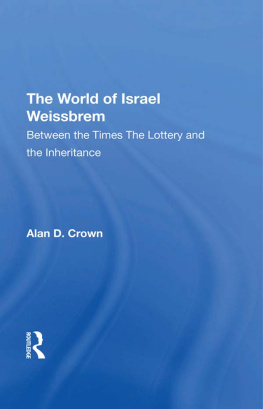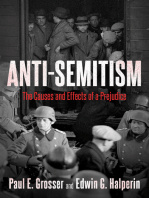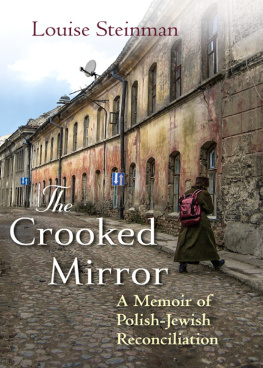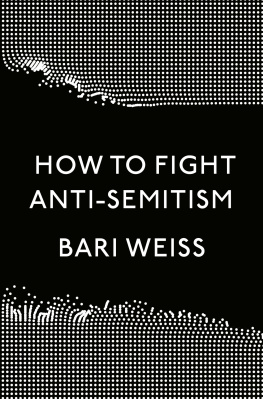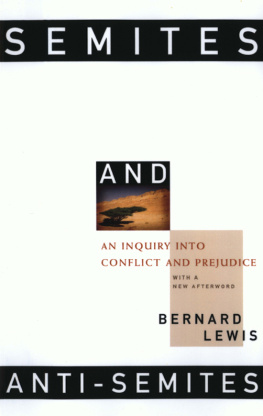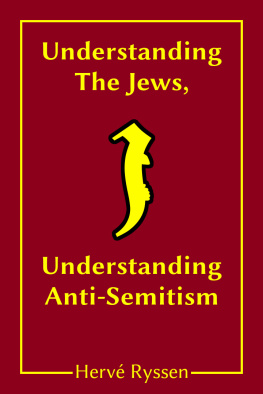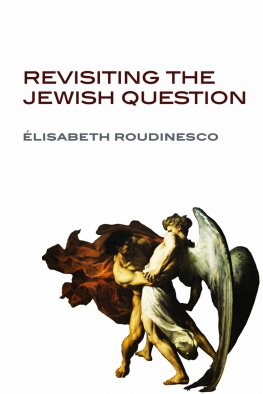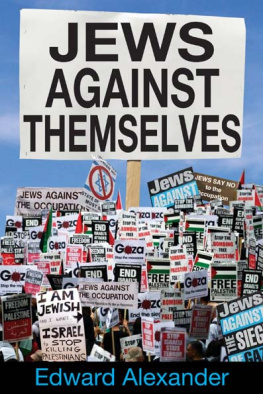Modem Hebrew Classics
David Patterson, Series Editor
This is a new series that will present in English formative works of lasting significance that appeared in Hebrew during the fifty years between approximately 1889 and 1939. The series, edited by David Patterson, president of the Oxford Centre for Postgraduate Hebrew Studies, will acquaint the English reader with the quality of modem Hebrew writing in its period of renaissance.
The World of Israel Weissbrem, translated by Alan D. Crown
Out of the Depths,]oseph Chaim Brenner, translated by David Patterson
FORTHCOMING
A Dream Come True, Eliezer Ben-Yehuda, edited by George Mandel, translated by T. Muraoka
First published 1993 by Westview Press
Published 2019 by Routledge
52 Vanderbilt Avenue, New York, NY 10017
2 Park Square, Milton Park, Abingdon, Oxon OX14 4RN
Routledge is an imprint of the Taylor & Francis Group, an informa business
Copyright 1993 by Taylor & Francis
All rights reserved. No part of this book may be reprinted or reproduced or utilised in any form or by any electronic, mechanical, or other means, now known or hereafter invented, including photocopying and recording, or in any information storage or retrieval system, without permission in writing from the publishers.
Notice:
Product or corporate names may be trademarks or registered trademarks, and are used only for identification and explanation without intent to infringe.
Library of Congress Cataloging-in-Publication Data
Weissbrem, Israel, 1839-ca. 1916.
[Selections. English. 1992)
The world of Israel Weissbrem: novels / by Israel Weissbrem;
translated by Alan D. Crown.
p. cm. (Modem Hebrew classics)
Contents: Pt. 1. Ben ha-zemanim. ha-Goral veha-yerushah.
1. Weissbrem, Israel, 1839-ca. 1916Translations into English.
I. Title. II. Series.
PJ5052.W37A2 1993
892.4.35dc20
92-22730
CIP
ISBN 13: 978-0-367-27385-9 (hbk)
Translation is an art as taxing as any of the fine arts practiced by humankind. The translator is caught between the need to render the original in a readable and polished version of the target language and the obligation not to depart too far from the original, which might have fine nuances not easily transferred from one language to another. The problem is so well known that generations of students have given their years to studying languages so as not to lose those drops of the original distillation that are inevitably spilled in the process of transfer. The translator cannot retreat from the confrontation and must do the best he can. In translating Israel Weissbrems work one is faced with a complicating factor: The author was writing in a language that was in the process of revivification after a long era during which it had been able to cope with the demands made upon its resources. The literary demands up until then were largely of the philosophical and theological order with which the extant lexicographical inventory could cope. Then, in the nineteenth century, belles lettres, poetry, the novel, and the essay made demands that necessitated updating the Hebrew language into a vernacular that could muster an inventory of phrases for every life setting.
The story of the renaissance of the Hebrew language is too well known to need retelling here. Suffice it to say that Weissbrems writings are a microcosm of that renaissance within a period of about thirty years, from the last quarter of the nineteenth century to the first decade of the twentieth. His first published novel, Beyn Hazemanim, or Between the Times (Warsaw, 1888), is liberally laced with the Biblical Hebrew with which the author was obviously very familiar. His phrasing is sometimes light and lively and at other times tortured and convoluted, and the translator, perforce, has to have constant recourse to the Biblical concordance to check quoted words in their original setting. Like generations of writers before him, Weissbrem used the simple device of abstracting Biblical phrases from their context and pressing them into a new setting, with changes only in gender or in number. In his later writings, Weissbrems style developed into an attractive, straightforward narrative presentation, and one can soon determine what are his own literary characteristics. The development is marked not only by his greater facility with the Hebrew language itself and less reliance upon Biblical forms, but also by a freer approach to a more natural dialogue, stronger characterization, and facility with the other elements of writing a novel, including elaborate puns and biting sarcasm.
The translator is caught between the desire to show this development in Weissbrems style and the need to write readable English prose. A reasonable solution seemed to be to vary the style of the translation so that the more mature Hebrew style of his last novel, Hagoral Vehayerusha, or The Lottery and the Inheritance, is matched by an English style that represents the ideas of the original in modem nuances and idioms (though slang, so often a useful vehicle for conveying the original idiom, has been avoided). The first novel was rendered in an English style in which normal contractions were deliberately avoided in an attempt to preserve something of the ponderous and highly melodramatic nature of the original. The style of the translation of all three of Weissbrems novels changes in an attempt to keep pace with the changes in the authors facility with Hebrew. The result may be that the first novel may seem to be rather more stilted in style than the third, but that was a risk deliberately taken by the translator.
One should also note here that there were numerous problems caused by printing errors in the original texts, especially in regard to proper names that were spelled inconsistently.
The nature of the original, with the author grappling to convey his meaning in a less than pliable language, meant that the intention was not always clear and, doubtless, there are places where the reader will draw the conclusion that the translator has misinterpreted the original meaning. That is a risk inevitable in any translation.
Wherever it has been considered necessary, technical terms from the social life of the people have been left untranslated. Thus Ernv, for example, is left in transcription though some attempt was made in the translation to clarify the meaning. Doubtless the reader will cope with such technicalities, but help can readily be found in the Encyclopaedia Judaica, which explains each of the terms encountered in this way. A basic glossary is also provided at the end of this book for help with the more difficult terms.
I must express my sincere thanks to my wife, Sadie Sorrell, who drew my attention to many places where the English translation echoed the Hebrew idiom too closely and where the target language would use a rather different word order. Her unflagging help has been valuable and generously given.
I must express my gratitude to the authors grandson, Leon Weissbrem of Melbourne, Australia, who introduced me to his grandfathers work and gave me many insights into his character. Weissbrems diligence uncovered additional manuscript material about his grandfathers family connections and business activities, which made it possible to paint a more vivid picture of Israel Weissbrem than had been the case hitherto.
Likewise, I acknowledge the help of the late Getzel Kressell, who provided me with copies of his articles on the Lishka Hashehora, the Black Bureau, and its opposition to Herzl, a matter with which Weissbrem was connected. Above all I must acknowledge the help of David Patterson, who originally rediscovered Weissbrem. He made good the deficiencies in the microfiche copies of Weissbrems works, the only copies that were available to me at the time, as it has proved to be impossible to find a complete set of the authors works in any single library.

